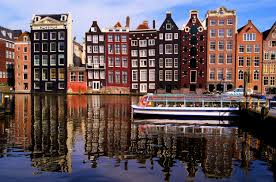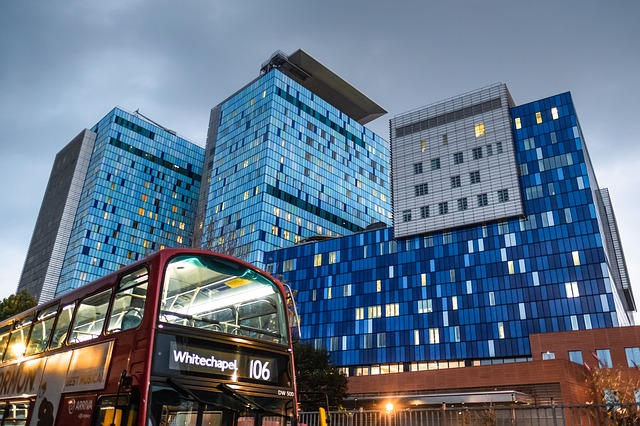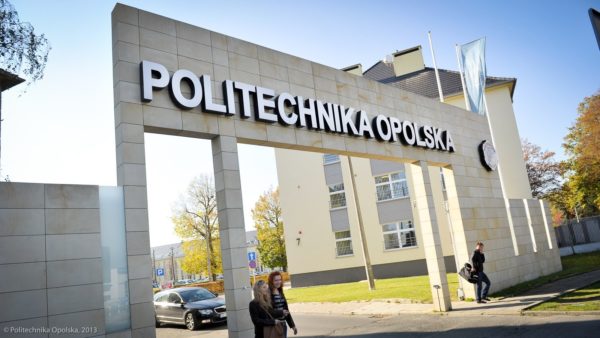- An educational system in the UK
- A preschool education
- A primary school
- A secondary school
- Higher educational institutions
- Differences in education
- Advantages of education
- Duration of education
- An educational year
- Exams
- Scholarships
- Scientific degrees
- A cost of education
- A residence
- A food
- Transport
Higher education in the UK
Only two titles, “Oxford” and “Cambridge”, can testify to the level of higher education in Great Britain. These two universities were created in the 12th and 13th centuries and since then have become real symbols of high-quality and high education. For a long time education in the country was considered exclusively elitist.
The main feature of higher education in the UK is the autonomy of universities. Institutions have the right to regulate courses, programs and teaching methods themselves. In the country it is accepted to allocate three subsystems in the general educational direction: English, Northern Irish and Scottish. The first two systems are similar in structure and implementation principles. The Scottish model has developed more isolatedly. As in most countries, the UK has private and public sectors. The latter is more numerous and actively regulated by the government.
For foreign students, universities in the UK are particularly attractive. Because getting a diploma in one of the universities in England is a prestige, a great prospect and a vivid testimony of a high level. The quality of higher education in this country is evidenced by the annual ratings among the world’s universities, where the British universities are confidently in high positions.
Universities in the UK are open to foreign students. This is evidenced by statistical data according to which the number of foreigners receiving higher education in British universities comprised 18% of the total number of students, which is about 440 thousand young people from different parts of the world. It is the highest in Europe and the second in the world (first place is US universities).
An educational system in the UK
In 1944, in order to streamline the system of higher education in England, the “Law on Education” was adopted. Under the law, all British citizens aged 5 to 16 have to receive secondary education on time.
Secondary education is divided into the main levels:
- Elementary School – intended for children aged 5 to 11 years;
- Secondary School – for children aged 11 to 16;
- Further Education – post-secondary education for youth aged 16-18 years.
There are two school programs in the country, somewhat different from each other. According to the English system of education in primary school, children are under 11 years of age, and in Scotland – under 12 years of age.
A preschool education
Special attention is paid to the segment of preschool education. In pre-school education, almost 100% of children of the age concerned are involved. Preschool education is carried out in private and public educational institutions. Functional nurseries, classes and play groups. Also developing “family” groups, designed for kids of different ages from 6 months and up to 5 years.
A primary school
All children under the age of 5 have to attend primary school education. At the same time, the learning environment is closer to the home atmosphere and is in the form of a game.
Children aged 7 to 11 are transferred to the elementary school. Depending on the level of knowledge and skills that a learner discovers, children are divided into three groups:
- «А» – capable students who have good preparation for school and intellectual abilities;
- «В» – this group includes children with medium skills that do not show a particular interest in learning;
- «С» – children with a poor level of education, weak abilities, they practically can not read, write and count.
A secondary school
Secondary education in the UK is compulsory for all children under the age of 16. There are basic types of schools:
- Grammatical;
- Integrated;
- Modern;
- Technological.
Also, in the UK there are closed schools – boarding schools with a separate education system called “public schools”.
Grammatical shools
In such institutions, students obtain a complete secondary education and after completing they can enter higher educational institutions for any educational specialty. As a rule, only 15% of pupils who graduated from elementary school and are middle-class are in such institutions. Quite often these students re-group during the educational process according to the level of knowledge. This is a classical school with a humanities and natural sciences direction. Students have the opportunity to study through individual programs.
Modern schools
Most elementary school students go toan a modern school, after which they receive only a certificate. This document is not a certificate and does not give the right to enter higher education. Such schools are aimed at training mass professions. General education directions are minimized.
Integrated schools
These schools combine all types of high school. They only formally have a common curriculum that in practice divides students into different streams depending on the difficulty of the program.
Technological colleges
This type of secondary education arose in 1988. Local technological colleges are designed for the training of top-level specialists in the industrial sector. To this end, the government and large industrial giants are providing colleges with a variety of subsidies aimed at improving the educational process. Technological colleges are dominated by natural sciences and technological trends.
Public schools
Such institutions are designed to prepare students for entry into universities. Graduates tend to take good positions in political circles, army, church and economic structures in the future. Currently, more than 120 public schools for men operate in Britain. They have about 50 thousand students. The direction of preparation is humanitarian, with a slope towards natural and mathematical specialties and practical direction.
Higher educational institutions
Like in most European countries, the UK has a three-tier system of higher education. Graduates have the opportunity to study first at a bachelor level. In England and Wales, you need to study for 3 years to earn a bachelor’s degree. In Scotland, the term of study for bachelor lasts 4 years. In order for the Ukrainian graduate to enroll in the bachelor’s degree, it is necessary to have a certificate of completion of secondary school education and a year of study at one of the Ukrainian universities. An alternative is a degree program:
- A-level;
- IB;
- Foundation Year.
After obtaining a bachelor’s degree, students have the opportunity to study at the magistracy. The term of study is 1-2 years, depending on the chosen specialty.
To study for a doctoral program, you must have a master’s degree. The term of study is 3-4 years.
Ukrainian students have the opportunity to choose among these types of universities in the UK:
- Universities with private and state ownership, which prepare bachelors, masters, and doctors for different educational areas.;
- Business schools that are known all over the world due to the high level of students’ training in the areas of «Economic» and «Finance», which are based on MBA programs;
- Creative personalities have the opportunity to study in artistic academies;
Differences in education
The most important difference is that the duration of the study in Ukrainian schools is 11 years. In the UK, children are 13 years old at school. Therefore, our certificate is not equivalent to English. There is also a mandatory requirement for admissions – adolescence at the time of enrollment. Students who are less than 18 years of age are not accepted by the University of Great Britain. That is why Ukrainian entrants need to take additional courses or join after a university course in Ukraine.
There are significant differences in the educational process itself:
- Most of the educational process (70%) is aimed at the self-training of students. Before the lecture, students should familiarize themselves with all the necessary materials and visit them not as listeners, but as active participants – to discuss the topic with the teacher, ask questions and offer their own ideas. This method is considered to be much more effective.
- Each student has to independently work during the educational process. The young man has to form his own personality as a professional, work on the disclosure of potential, to follow the discipline and show a high level of self-control.
- If a student can not understand the topic, he or she will be helped by both lecturers and classmates. Here they are not afraid to ask for help and all requests are quickly responding and not denied. Every school wants to teach, first and foremost, a specialist.
Advantages of education for Ukrainians
- Great Britain is one of the leading countries around the world for the quality of higher education;
- There are more than 100 state-owned universities in the country, which have an excellent reputation on the international level;
- A large variety of educational areas and professions, including narrow-profile specialties. Students have the opportunity to obtain a European degree in almost any field of knowledge;
- A large number of grants and scholarships for foreigners who cover or significantly reduce the costs of studying and living for foreigners;
- Using in the educational process of advanced technologies and a powerful scientific and material base, developed according to the latest world standards;
- Entrance exams are held only during the intake of students in the creative profession;
- High graduation rates after graduation in many countries around the world. Graduates from UK universities are valued in most countries;
- Studying English at a high level, which is a powerful impetus for the development of a good career;
- Students have the opportunity to study and work at the same time (no more than 20 working hours per week). This is promoted by the policies of certain UK educational institutions.
Duration of education
In order to become a bachelor’s degree in the UK, you need to complete a course of 3 years. But there are educational areas that require practical work. These include fashion, architecture, design, and medicine. Accordingly, it takes more time to study in these areas. For example, future designers should have a diploma of preparatory courses lasting 1-2 years and only then undergo a basic course of 3 years. For medical specialties, preparatory courses last for much longer and the total term of study may be 6-7 years only for obtaining a bachelor’s degree.
An educational year
The beginning of the school year in the UK coincides with the Ukrainian one and starts on September 1. The formal graduation date is August 30, but in practice, it ends much faster.
All universities in the UK independently decide on the terms of the school year, but have to followto the main criteria:
- Education ends in June;
- During the year there is a 3-5 week break for religious holidays.
Exams
The question of controlling the work and knowledge of university students is also autonomous. Most universities emphasize final examinations. Current knowledge control is also conducted on a regular basis. On the basis of the results, a decision is made to transfer the student to the next level or course.
Scholarships
It’s very difficult to get scholarships and study grants in the UK. Due to the high quality, there is practically no free program for studying. But if you are lucky enough to undergo selection and to become a grant holder for studying – such payments can cover not only the cost of education but also the cost of living and even the cost of airline tickets.
Often, grants are designed for a particular curriculum or specialty. Only those students who are in financial difficulties can expect financial assistance and can prove it. If a student has good grades and a good reputation in the university but financially provided – then it is no sense to count on a scholarship or a grant.
There is also the possibility to receive financial assistance from sponsors, foundations and private companies. You need to be able to prove your benefits in the forwarding letter to all of these organizations. The more clearly the goals are set, the more likely it is to receive financial support.
Scientific degrees
Academic degrees are awarded only after the completion of the course, regardless of the level of education. There are two types of degrees – general and professional, which are also divided into several stages.
To obtain a bachelor’s degree you have to complete a course of 3-4 years. After graduation and successful examinations, students become holders of a bachelor’s degree in natural sciences, humanities or other areas.
There are colleges in which a higher education diploma can be obtained after 2 years of study.
In order to obtain a Master’s degree, you have to undergo education and practical training in specialization within 1-2 years.
The third degree – the title of Master of Philosophy is awarded after 2 additional years of study and successful defense of the dissertation. A Philosophy Doctor degree can be obtained after a further three-year training and defense of the dissertation.
Doctors of science can be specialists in various fields, including lawyers, humanities, theologians, specialists in medical and natural sciences.
A cost of education
It is worth noting that the cost of studying at universities in the UK is quite high. But such prices are due to the high level of education and the prestige of universities at the world level. There are more than 100 public universities in the UK, with tuition fees varying from £ 8,000 to £ 18,000 per year. The size of the tuition fee depends on the prestige of the institution, its location, international ranking and the popularity of the specialty.
There are only five universities with private property in Britain and the cost of tuition in these institutions is from £ 10,000 to £ 16,000 per year. The most expensive programs are MBA and business schools, where the year of study costs from £ 10,000 to £ 50,000.
A residence
Britain is considered a rather expensive country not only for studying but also for living. The cost of food, housing and travel depends on the area. So, in the most popular cities for students, like Oxford, Cambridge, and London, they will have to spend between £ 7,000 and £ 10,000 per year. In other cities, such costs can range from £ 6,000 to £ 9,000 per year.
Students can choose where they will live:
- In the hostel, single or double rooms;
- Live in a family;
- Rent an apartment independently or with friends.
It is cheaper to live in campuses such as Cardiff or Nottingham.
Food
As already noted, the United Kingdom is one of the most expensive countries of residence. Therefore, the cost of the products is quite high:
- Milk 1 liter – 1.10 EUR;
- Bread – 1.10 EUR;
- Eggs – 2.20 EUR for 12 pieces;
- Cheese – 6.30 EUR за 1 kg;
- Apples – 2.10 EUR за 1 kg;
- Potato – 1.30 EUR за 1 kg;
- Rice – 1.10 EUR за 1 kg;
- Veal – 8.70 EUR за 1 kg;
- Chicken – 6.60 EUR за 1 kg;
- A bottle of water 0.33 l – 1.00 EUR;
- Cappuccino – 3.00 EUR.
If you expect to have a meal in cafes and inexpensive restaurants, you’ll have to pay for lunch from 9.40 to 14 EUR per dinner. In fast food establishments, lunch costs from 5.40 to 7.60 EUR.
Transport
If you will not find an apartment or a hostel in a student campus, you will have to spend on travel by public transport. The cost of one ticket is from 2.10 to 3.50 EUR. The cost of a monthly ticket is from 56 to 103 EUR. Prices depend on the city of residence.
Find out about the top 3 most expensive universities.


 kudapostupat
kudapostupat














 311640
311640 





















